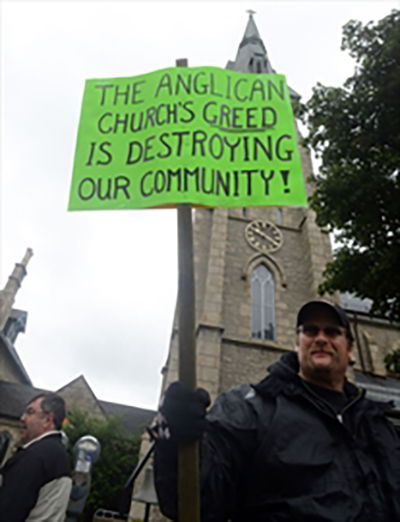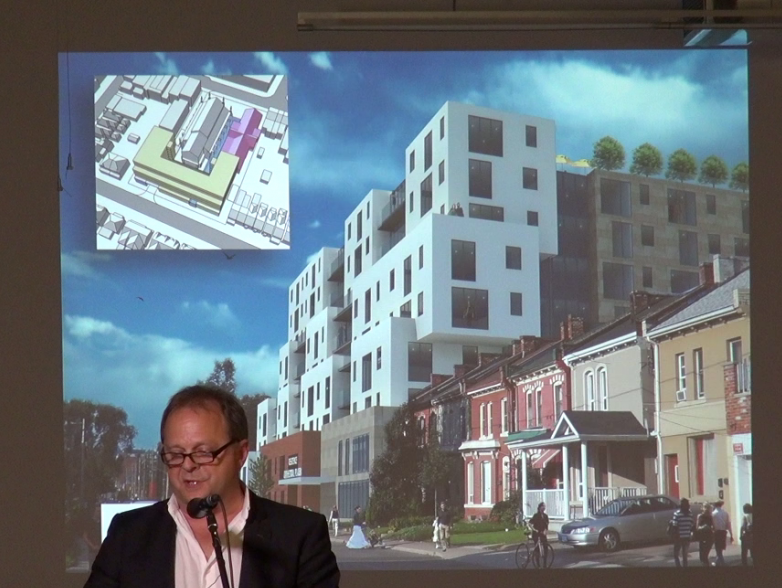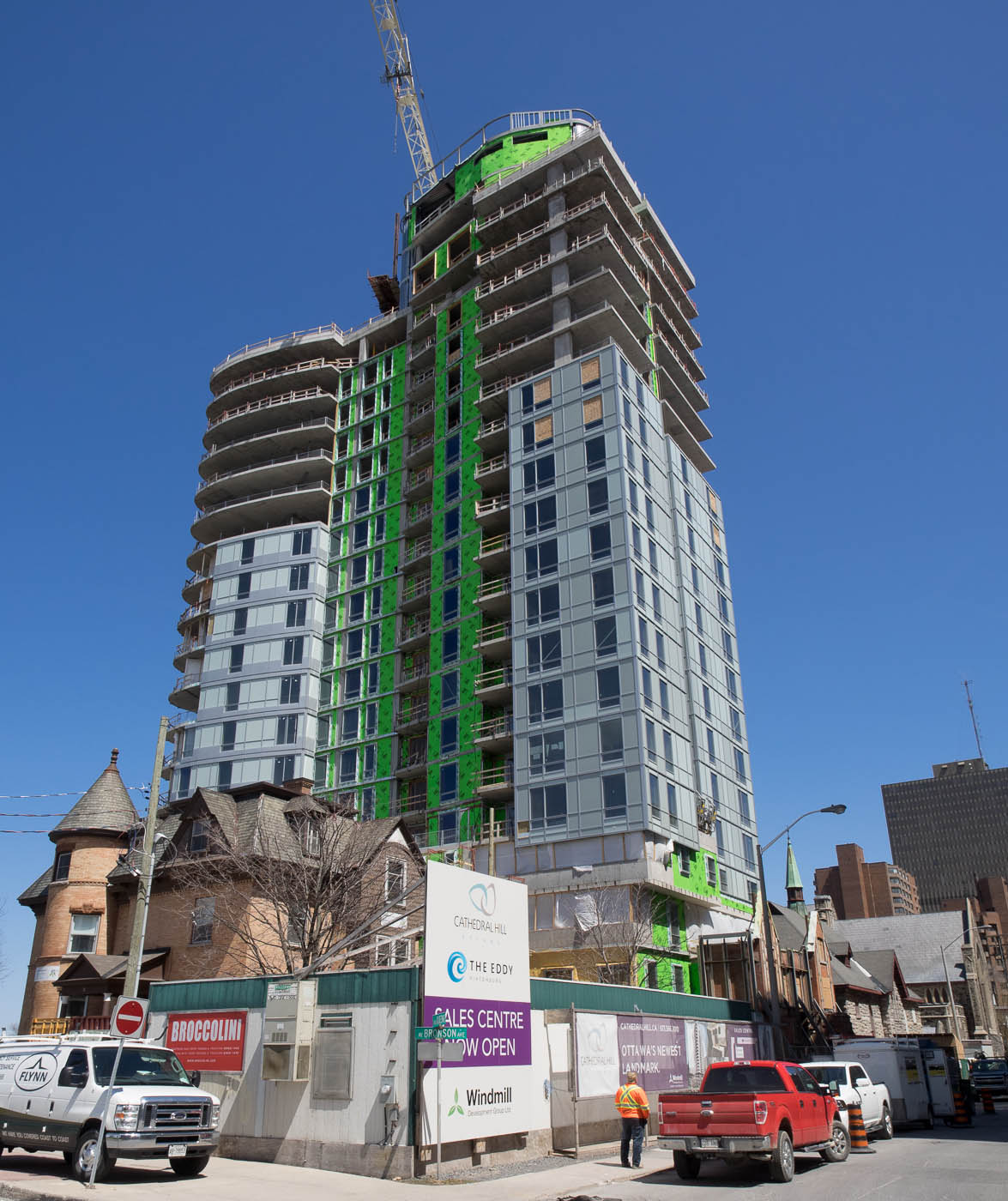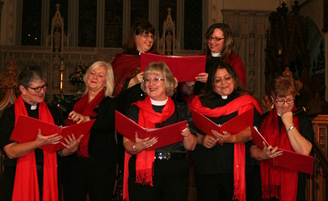St. Matthias Anglican Church in Guelph has been sold by the Diocese of Niagara for $2 million to a property developer who intends to build a six story apartment building on the lot. Residents in the surrounding area are less than happy about this and are protesting the sale. The local paper recently published an editorial implying that the Diocese of Niagara is behaving more like a corporation – in an “unflattering sense of the word” – than a church. Developers are expected to be motivated by profit, churches are not:
In the story of what’s next to come to a former church property in south end Guelph, a development firm has frequently been framed as a villain in the narrative.
Whenever that happens, it’s a convenience for the current owner-vendor of the property.
That’s the Anglican Diocese of Niagara.
It’s the stakeholder in this chronicle that decided to put the former St. Matthias Church lands up for sale – and to choose the big-bidding developer, whose intentions could easily have been anticipated by the diocese. The diocese has confirmed that it received two purchase offers from churches but they were “substantially lower” than the offer it tentatively accepted.
The diocese had every right to accept whatever bid it wanted to in this process. But it must accept that in making this decision it will be regarded as behaving corporately – in an unflattering sense of the word.
Michael Bird, unhappy at the thought that there are villains at work in all this, has responded:
I strongly disagree with the editorial board’s characterization that there are villains in this story. The Diocese, the developer, members of city council, concerned citizens and others are each playing a role in what has become a very thorough planning process. I continue to have every confidence that the needs and well-being of Guelph citizens will be of primary concern.
[….]
Today our congregations in the city of Guelph continue to proclaim Jesus’s message of love and hope and justice, particularly in this season of Easter.
I note that Jesus’ message of salvation is missing from the list.
Apparently, the reason the building has been abandoned and sold is so the congregation can “focus on ministry”:
In 2013, the St. Matthias congregation voted to take leave of their building to focus on ministry in the community rather than the upkeep of a building and property.
What ministry, you might be wondering? Well, advertising Earth Day, for one. And being a member of Proud Anglicans for another – evidently the massive influx of LGBTQetc Anglicans was insufficient to keep the place afloat.
The organisation of local residents opposed to the sale has its own perspective on how effectively St. Matthias has managed to “focus on ministry in the community” since its closure:
From our perspective, there does not seem to any continued Anglican ‘ministry’ in this neighbourhood. We have not seen a public service, prayer meeting, flyer, social event or any other invitation in the two years since the church closed. The site itself has been vandalized and/or signs empty, for most of that time.
The Diocese’s director of justice, community and global ministries, Rev Bill Mouse clearly had not been briefed by the bishop when he admitted in an interview that, in the end, it all came down to money:
It came from the congregation’s size and their ability to financially support the ministry and the property.
A United Church minister was “baffled and disturbed at the diocese’s decision”. He approached the diocese to cooperate in setting up:
a spiritual centre — a place where different religious traditions could meet, celebrate in their own tradition but co-operate for the sake of the neighbourhood.
Normally this type of mushy mult-faith amalgam would be right up the Diocese of Niagara’s street but, in this case, there was no response from the diocese. Well, $2 million is a lot of money.
Like this:
Like Loading...






 When the lady priests in the Diocese of Niagara
When the lady priests in the Diocese of Niagara